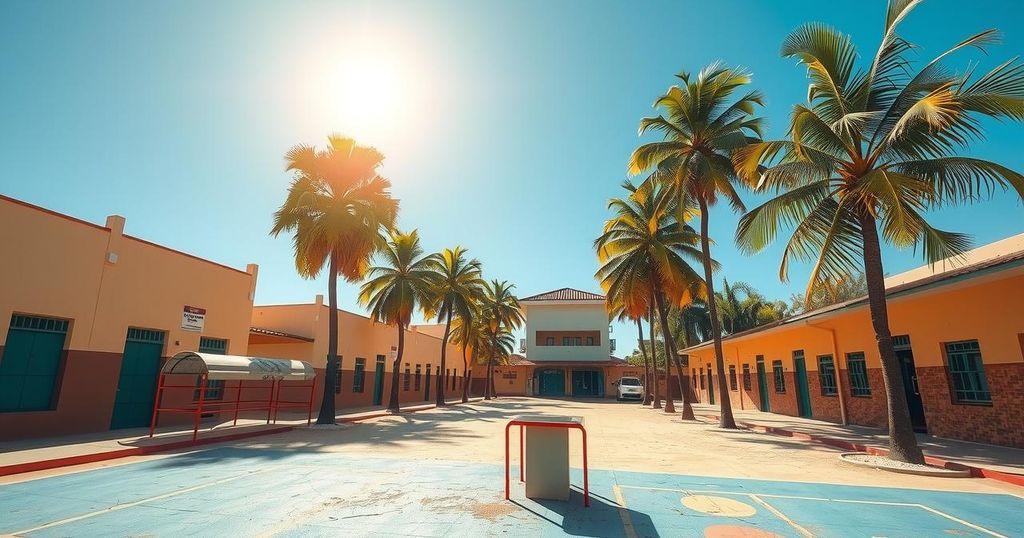A heat wave in southern Brazil led to the suspension of classes in five cities, including Rio Grande. The National Institute of Meteorology issued severe weather warnings as temperatures soared above averages. An education policy researcher noted that school closures due to extreme heat are becoming the new normal, amidst challenges from previous extreme weather events affecting millions of children.
In southern Brazil, five cities suspended classes on Thursday due to a severe heat wave, with temperatures soaring to 36 degrees Celsius. The municipalities, including Rio Grande, are in the state of Rio Grande do Sul, where schools reported being ill-equipped to deal with such extreme temperatures. Classes are projected to resume on Monday pending conditions.
The National Institute of Meteorology has issued a severe weather warning not only for Rio Grande do Sul but also for four additional states. The affected regions have recorded temperatures that are up to 5 degrees Celsius above the monthly average, raising concerns about the impact on education.
Last year, extreme weather events, particularly floods and droughts, affected over 1.17 million children in Brazil, according to a January report by UNESCO. Notably, Rio Grande do Sul saw more than 740,000 children miss school due to floods in May 2024.
Daniel Cara, an education policy researcher at the University of Sao Paulo, indicated that while closures traditionally occurred during dry seasons because of drought concerns, heat-related school cancellations are now becoming a regular issue. He remarked, “This is going to be the new normal. Climate issues have always put pressure on the school calendar. Now, the new factor is that heat waves and the lack of air conditioning will make class cancellations a regular occurrence.”
Brazilians have been facing extreme heat this summer, highlighted by Rio de Janeiro setting a record with its hottest day in a decade, reaching 44 degrees Celsius in February.
The recent heat wave in southern Brazil has prompted the suspension of classes in five cities, highlighting the inadequacy of school facilities to manage extreme temperatures. With meteorologists issuing severe weather warnings and a historical context of climate-related school closures, it is evident that increasingly severe weather patterns are becoming a new norm in the region’s education landscape.
Original Source: www.hindustantimes.com




